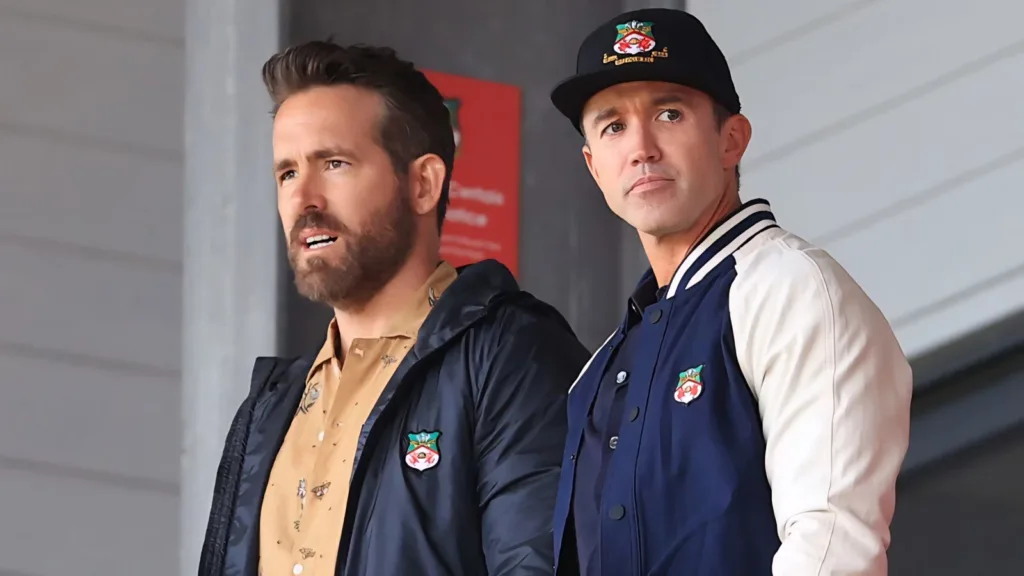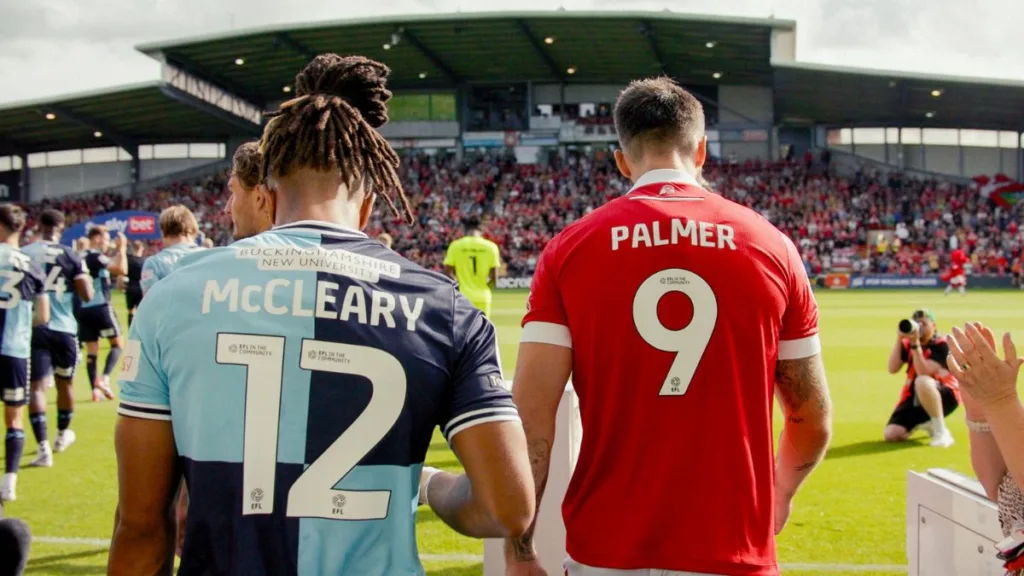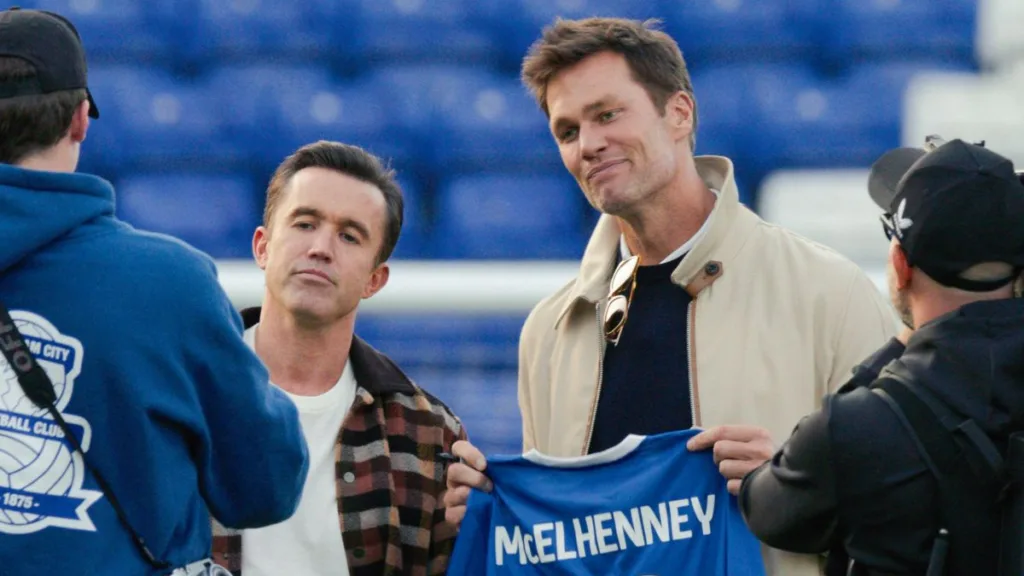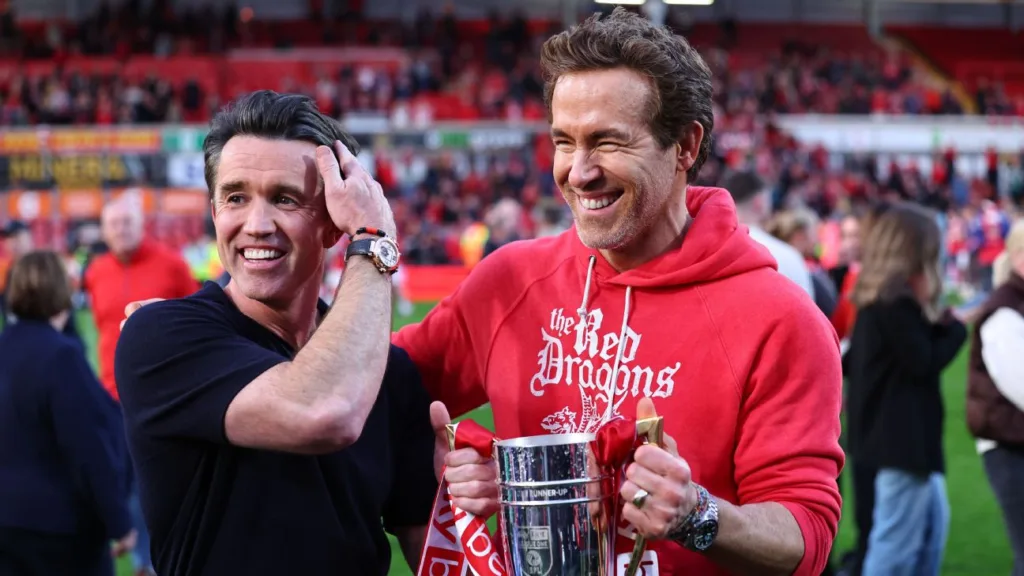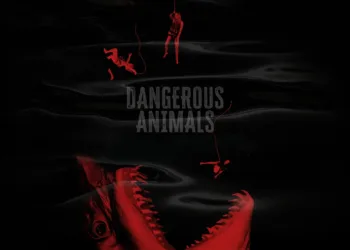The chronicle of Wrexham AFC under its Hollywood stewardship has already etched itself as a modern sporting fable, a narrative of improbable resurgence. Having surged from the relative obscurity of the National League, and then battled through the demanding tiers of EFL League Two, the club now confronts a fresh, formidable horizon.
Season four crystallizes around an ambition of breathtaking audacity: a third successive promotion, targeting the rarefied air of the EFL Championship. Such a meteoric, relentless ascent finds scant parallel in the densely storied annals of English football, positioning Wrexham’s quest as a daring venture into almost entirely uncharted territory.
This potent aspiration, the pursuit of a “back-to-back-to-back” triumph, electrifies the season’s opening frames. Yet, beneath this exhilarating momentum, a pragmatic strategic conundrum simmers, debated with fervor across digital fan forums and local broadcasts: does wisdom dictate a measured period of consolidation within League One’s challenging arena, or an immediate, high-stakes gamble for yet another improbable climb up the pyramid?
The Calculus of Unprecedented Ambition
The club’s vertiginous trajectory necessitates a sophisticated recalibration of its operational architecture, a charge now handed to the newly appointed Chief Executive Officer, Michael Williamson. His curriculum vitae, notably burnished by a significant tenure at the European football behemoth Inter Milan, speaks to an ingrained understanding of elite sporting ecosystems.
Williamson’s complex remit extends beyond mere fiscal stewardship; he is tasked to shepherd Wrexham’s burgeoning ambition while ostensibly anchoring it to the deep-rooted, almost sacred communion between the club and its town. This delicate balancing act is immediately thrown into sharp relief by the stark mathematics of aspiration. The financial projection for a credible assault on the Championship—a sum hovering around fifty million pounds—is a sobering testament to the rarefied economic strata the club now seeks to enter.
Reynolds and McElhenney’s widely broadcasted response, a seemingly unblinking commitment to “go all in,” infuses the narrative with their characteristic, almost performative bravado. Yet, this pronounced financial audacity is shadowed by considerable peril; a misstep, a season where the gamble fails to pay off, could trigger a painful regression, the spectre of relegation a chilling counterpoint to their high-octane optimism.
The investment required is not merely for marquee signings; it is a foundational reconstruction. It encompasses the tangible transformation of the club’s physical and human resources: expanded capacity at the historic Racecourse Ground, the development of training facilities befitting a higher echelon, an enlarged professional staff, and a more substantial, strategically vital commitment to the burgeoning youth and Wrexham AFC Women’s football programmes.
Even a singular, seemingly mundane component, a new playing surface, carries a seven-figure price tag—a stark illustration of the granular, relentlessly costly reality underpinning Wrexham’s grand, and increasingly high-stakes, design.
The Sharpened Edge of Competition
This season purportedly pivots towards a more pronounced focus on the stark realities of the pitch, where narratives of ambition must ultimately confront the uncompromising arbiter of the scoreline. Wrexham’s initial foray into League One is depicted as a bracing immersion into a fiercely competitive ecosystem, a landscape where their celebrated ascent now faces its most rigorous examination.
Encounters such as the keenly observed fixture against a prominent Birmingham City serve as early barometers of the team’s capacity to adapt, particularly now that their relative financial clout no longer guarantees them an automatic, overwhelming advantage over many divisional rivals. The preceding North American pre-season tour for the men’s squad, a now familiar prelude, offers a glimpse into their preparations, its varied outcomes hinting at the significant adjustments required for the sterner tests integral to this higher tier.
Manager Phil Parkinson, the seasoned hand at the helm, navigates these fresh challenges with a characteristic blend of gruff pragmatism and understated resolve. His pronouncements, like the earthy anticipation of “a proper tear-up” before a demanding match, continue to offer viewers those coveted glimpses into the raw, unvarnished ethos of the dressing room.
While an initial, almost deceptive, composure marks his demeanour in the early episodes, one senses the inevitable intensification of pressure, the simmering undercurrents that define a long and arduous league campaign. Simultaneously, the documentary continues to trace the parallel, yet distinctly different, path of Wrexham AFC Women.
Their own North American tour is portrayed with an emphasis on its inherent difficulties and developmental stage, starkly contrasting the operational scale and immediate fortunes of their male counterparts. The handling of an off-pitch incident involving striker Rosie Hughes during this tour, its apparent swift and somewhat muted resolution within the show’s narrative, perhaps speaks volumes about the selective focus, or the differing pressures and public relations managed within the women’s game as presented to the audience.
The Enduring Soul of a Resurgent Town
Beyond the floodlights and formidable financial spreadsheets, “Welcome to Wrexham” consistently affirms that its truest, most resonant currency remains the town itself and its resilient, deeply invested populace. Season four diligently continues this vital narrative thread, weaving in fresh vignettes of local enterprise, personal courage, and community adaptation. We are introduced to a young woman whose entrepreneurial spirit impressively materializes as a thriving coffee business housed in a converted horse trailer, a venture that eventually graces the historic Racecourse grounds—a charming microcosm of the burgeoning local economy.
Another poignant storyline features a Ukrainian family, displaced by the ravages of war, courageously establishing a new cafe on the high street, their endeavour emblematic of Wrexham’s evolving demographic tapestry and its intrinsic capacity for embrace. These carefully chosen individual tales contribute to a broader, uplifting picture of a community visibly benefiting from the football club’s dramatic ascent, evidenced by a palpable development boom and a clearly renewed civic optimism permeating the town.
Yet, this uplifting narrative of resurgence is not presented without an implicit awareness of its inherent complexities. The documentary subtly acknowledges the potential for a sense of displacement, the quiet, undercurrent of concern that some longtime residents might become detached from the rapid, almost dizzying metamorphosis of their surroundings.
The articulated efforts of the club’s leadership, particularly the new CEO Michael Williamson, to preserve and nurture authentic connections with the original fanbase and the town’s deep-seated identity are thus framed as crucial counterweights to the pressures of unchecked expansion and commercialisation. The prevailing public atmosphere, however, is depicted as overwhelmingly positive, a genuine spirit of collective uplift that feels authentic.
This is reinforced by the welcome, grounding return of familiar local figures—the affable pub landlord Wayne Jones, the ever-present musician Michael ‘Scoot’ Hett—whose continued presence provides essential narrative continuity and an unfiltered conduit for fan perspectives as they navigate the exhilarating, occasionally bewildering, realities of supporting a team on such an extraordinary, globally watched trajectory.
The Polished Lens on Hollywood’s Welsh Adventure
The proprietors, Ryan Reynolds and Rob McElhenney, remain pivotal figures, their presence meticulously woven into the season’s fabric, even when physical attendance at the Racecourse is constrained by their A-list commitments. Their commentary, often delivered from afar or via trans-Atlantic Zoom calls for board meetings, shapes the viewer’s understanding.
McElhenney, in particular, continues to project an aura of profound personal investment in both the club’s fortunes and the town’s welfare, a sincerity that underpins the show’s emotional core. Interspersed are the expected humorous asides, such as Reynolds’ wry anecdote about a player’s car rental request, moments designed to affirm their relatable, albeit stratospherically wealthy, personas.
The gravitational pull of Wrexham now attracts an expanding constellation of celebrity onlookers. Figures like Tom Brady, appearing in his capacity as a minority owner of a rival club, engage in carefully choreographed encounters with McElhenney, at times resulting in a curious “meta-narrative” where documentary crews film other crews, underscoring the highly mediated nature of this spectacle.
The production itself maintains its characteristic sheen: slick editing, dynamic cinematography that effectively captures the visceral energy of match days, and a narrative structure that skillfully alternates between on-field drama and community vignettes, typically building towards a climactic game. Lighter subplots, such as Humphrey Ker’s gruelling marathon training, provide tonal variation, while the acknowledged use of “reconstructions” serves as a subtle reminder of the crafted storytelling at play, even amidst the purported authenticity.
The Precarious Summit of Ambition
The narrative terrain of “Welcome to Wrexham” perceptibly shifts in this latest instalment, as the club grapples with the consequences of its own extraordinary velocity. The once-comfortable mantle of the financially dominant underdog, so effective in the lower tiers, wears thin against the more robust and established entities of League One. “Growing pains” are no longer a quaint metaphor but a tangible reality, manifesting as the club confronts the challenge of maintaining genuine competitiveness in a more demanding league.
This altered status amplifies the already immense pressure surrounding the pursuit of an unprecedented third successive promotion. With substantial investments committed, the potential repercussions of falling short are stark, lending a palpable tension to the club’s ongoing transformation from a cherished local institution into a more complex, larger-scale sporting operation.
This evolution inevitably interrogates the very essence of Wrexham’s identity and its relationship with its devoted fanbase. The prospect of escalating ticket prices, a common corollary of stadium upgrades and heightened divisional status, raises delicate questions about accessibility and the preservation of that “birthright” sensibility that has long characterized local support.
The series appears to engage with how the city and club are navigating this new phase of accelerated growth, but the overarching, implicit question remains: can this remarkable trajectory of success be sustained without fracturing the foundational community connection that has been so integral to its compelling, global appeal? The delicate equilibrium between ambition and authenticity faces its most stringent test yet.
Welcome to Wrexham Season 4 premiered on May 15, 2025, on FX and is available for streaming on Hulu in the U.S. and Disney+ in the UK.
Full Credits
Directors: Bryan Rowland, Josh Drisko
Producers: Jeff Luini, Aaron Lovell, Shannon Owen, Liz Spano
Executive Producers: Rob McElhenney, Ryan Reynolds, Humphrey Ker, Andrew Fried, Sarina Roma, Dane Lillegard, Nicholas Frenkel, George Dewey, Josh Drisko, Bryan Rowland, Nick Frenkel, Andy Thomas
Cast: Rob McElhenney, Ryan Reynolds, Humphrey Ker, Shaun Harvey, Phil Parkinson, Paul Mullin, Ollie Palmer, Elliot Lee, Jacob Mendy, Gemma Owen, Rosie Hughes, Lili Jones
Directors of Photography (Cinematographers): Craig Hastings, Ed Edwards, James Melrose, Craig Murdoch, Verdy Oliver, Esther Vardy, Leighton Cox, Tom Reece
Editors: Michael Anthony Brown, Mohamed El Manasterly, Curtis McConnell, Peter Holmes, Janak Elise Cox, Peter Leininger, Marcella Serrano, Bryan Rowland, Steve Welch, Josh Drisko, Tim Wilsbach, Michael Oliver, Matt Wafaie, Brian Anton, Charles Little, Jenny Krochmal
Composer: Giosuè Greco
The Review
Welcome to Wrexham Season 4
This season of "Welcome to Wrexham" compellingly charts the escalating ambition and evolving identity of a club and its town. The series skillfully blends high-stakes football with heartfelt local stories and the polished sheen of its Hollywood stewardship. While navigating the demanding realities of League One and the inherent pressures of its meteoric rise, it remains a fascinating, well-crafted production that thoughtfully probes the delicate balance between unprecedented success and authentic community connection.
PROS
- The quest for a historic third successive promotion provides an inherently dramatic and engaging central storyline.
- Successfully balances exciting on-pitch football action, insightful glimpses into club business operations, and deeply human community stories.
- Continues to shine a light on the town of Wrexham and its residents, showcasing resilience, entrepreneurial spirit, and the positive impact of the club's success.
- The series remains a slick, well-produced documentary, with Ryan Reynolds and Rob McElhenney providing charismatic and often humorous stewardship.
- Includes interesting secondary narratives, such as the development of the Wrexham AFC Women's team and personal stories of figures like Humphrey Ker.
CONS
- As the club becomes more financially robust and successful, the traditional underdog narrative necessarily shifts, which may alter its appeal for some viewers.
- While a strength, the polished production might occasionally feel at odds with the gritty realities some associate with lower-league football.
- The acknowledged use of "reconstructions" and the highly visible, sometimes "meta," nature of celebrity involvement can occasionally remind viewers of the constructed aspects of the docu-series.









































